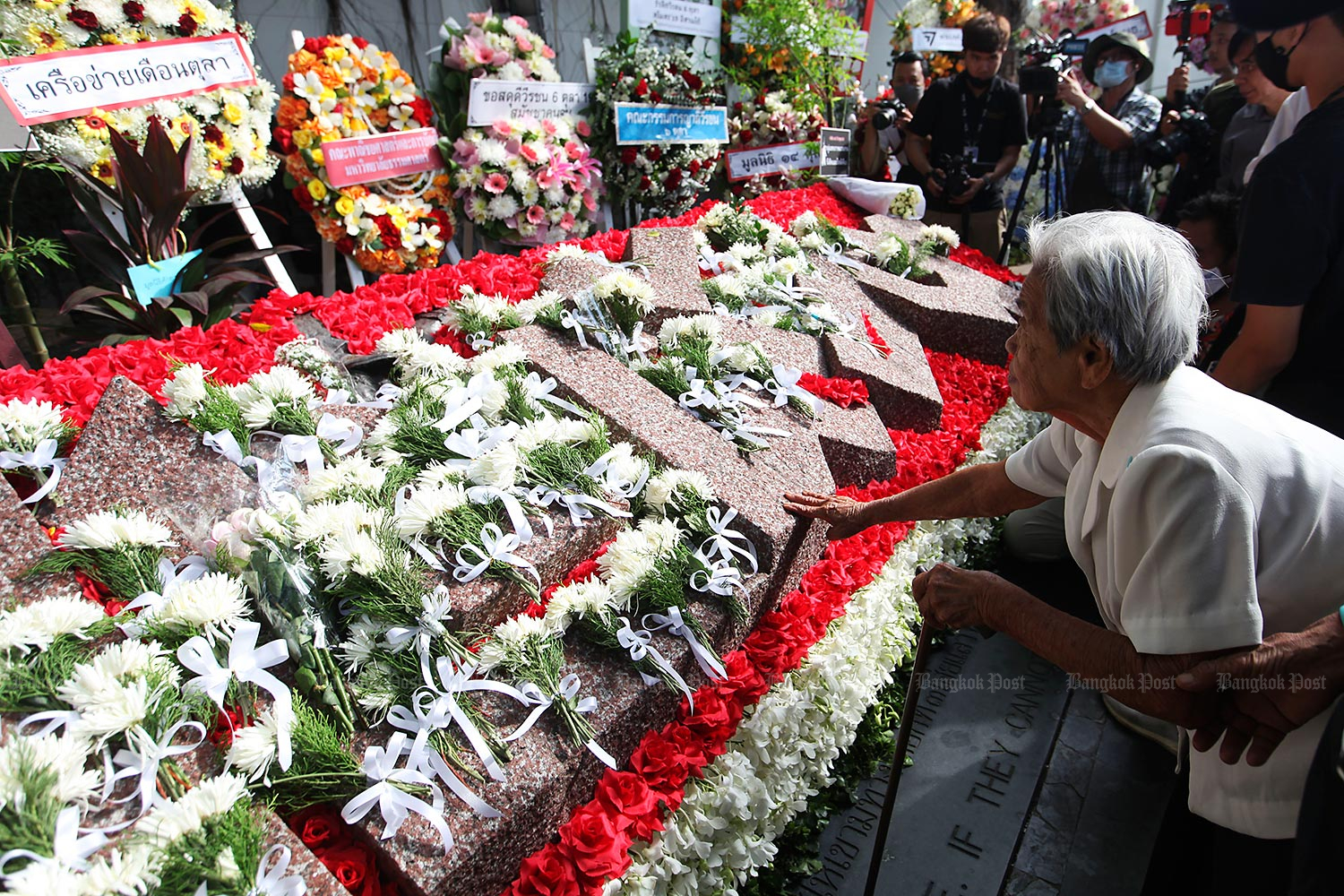
The escalation of the young protest movement developed from the increase in students defying authoritarianism following the military coup in 2014, a forum was told on Tuesday.
Kanokrat Lertchoosakul, a political science lecturer at Chulalongkorn University, said the emergence of youth-led demonstrations was an offshoot of various student groups, including the Education for Liberation of Siam (ELS), and was not affiliated with any political parties.
"They arose in the wake of authoritarianism, such as haircut and uniform regulations, after the military coup," she told the forum held at the Faculty of Political Science to mark the 44th anniversary of the Oct 6, 1976 massacre. "Their challenge to conservative values has developed for seven years. Their movements are issue-based, unorganised and independent of political parties."
Asst Prof Kanokrat dismissed the allegation of foreign support for students, stressing that they identified with those involved in the Oct 6, 1976 event, especially victims hanged from the tamarind tree at Sanam Luang, because they feared they, too, would suffer the same plight of being unheard.
Prajak Kongkirati, a political science lecturer at Thammasat University, said student protesters identified with the People's Party (Khana Ratsadon) from the Siamese Revolution of 1932 and the red-shirt protesters of 2010, who were heroes despite being portrayed as losers by historians.
"On the other hand, they think the Oct 14, 1973 uprising ended in defeat because student movements did not challenge the ideology of Thainess, which killed them later in the Oct 6, 1976 event in the name of virtue," he said.
Asst Prof Prajak said the onus was on the government to ensure justice because it would strengthen democracy. "Society must find out the truth, bring the perpetrators to justice, make amends and reform national security agencies which violate human rights," he said.
Thanathorn Juangroongruangkit, the founder of Progressive Movement and now-defunct Future Forward Party, said the government must return power to civilians by implementing reforms, including the royal institution.